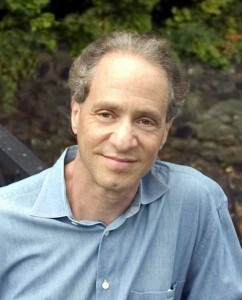The Woman With 100 Patents and a 200 IQ
 Edith Stern (b. 1952) was born in Brooklyn to impoverished Holocaust survivors who had married in the Warsaw Ghetto. Her father, Aaron Stern, had been a professor of languages (he was fluent in seven). When his daughter was born, he called a press conference – to which two reporters showed up – and declared: “I shall make her into the perfect human being.” Thus began what journalists at the time called “the Edith Project”. Stern immediately immersed his daughter in learning. He exposed her only to classical music, talked to her all the time, and taught her with flash cards. Suffering from jaw cancer and unable to work, Stern spent all of his time with Edith. By the age of 5, Edith had read through the entire Encyclopedia Britannica. Although her father did not believe in IQ tests, she nonetheless scored a 205 that same year. Edith enrolled in college at 12, earned her BS in mathematics by 15, and her Master’s at 18. By this point, she was already teaching at Michigan State University. She went on to defend her Ph.D and joined IBM’s R&D division. Today, Stern holds over 100 patents for technological innovations used in telephones, digital media, video conferencing, self-driving cars, and the internet. Stern is still a “distinguished engineer” at IBM, where she is a VP, and recently won the Kate Gleason Award for lifetime achievement in technology. Although her mother once disagreed with her father about his methods, she later concluded that it had made her a “very mature, compassionate, kind, intelligent and wise young woman.” Her father maintained that being a genius has little to do with genetics, and everything to do with how a child is raised and educated. He wrote in his 1971 The Making of a Genius: “I can foster the same meteoric IQ in the children of the Tasaday tribe, a Stone Age people living in the Philippines.”
Edith Stern (b. 1952) was born in Brooklyn to impoverished Holocaust survivors who had married in the Warsaw Ghetto. Her father, Aaron Stern, had been a professor of languages (he was fluent in seven). When his daughter was born, he called a press conference – to which two reporters showed up – and declared: “I shall make her into the perfect human being.” Thus began what journalists at the time called “the Edith Project”. Stern immediately immersed his daughter in learning. He exposed her only to classical music, talked to her all the time, and taught her with flash cards. Suffering from jaw cancer and unable to work, Stern spent all of his time with Edith. By the age of 5, Edith had read through the entire Encyclopedia Britannica. Although her father did not believe in IQ tests, she nonetheless scored a 205 that same year. Edith enrolled in college at 12, earned her BS in mathematics by 15, and her Master’s at 18. By this point, she was already teaching at Michigan State University. She went on to defend her Ph.D and joined IBM’s R&D division. Today, Stern holds over 100 patents for technological innovations used in telephones, digital media, video conferencing, self-driving cars, and the internet. Stern is still a “distinguished engineer” at IBM, where she is a VP, and recently won the Kate Gleason Award for lifetime achievement in technology. Although her mother once disagreed with her father about his methods, she later concluded that it had made her a “very mature, compassionate, kind, intelligent and wise young woman.” Her father maintained that being a genius has little to do with genetics, and everything to do with how a child is raised and educated. He wrote in his 1971 The Making of a Genius: “I can foster the same meteoric IQ in the children of the Tasaday tribe, a Stone Age people living in the Philippines.”
Words of the Week
We have 11 million Jews and from that we produced Einstein, and they couldn’t produce an Einstein from 170 million…it all depends on the head…the mind controls the muscles.
– David Ben-Gurion, responding to a question in 1957 of how the nascent Israeli soccer team might beat a professional Russian soccer team that chooses its players from 170 million citizens.



